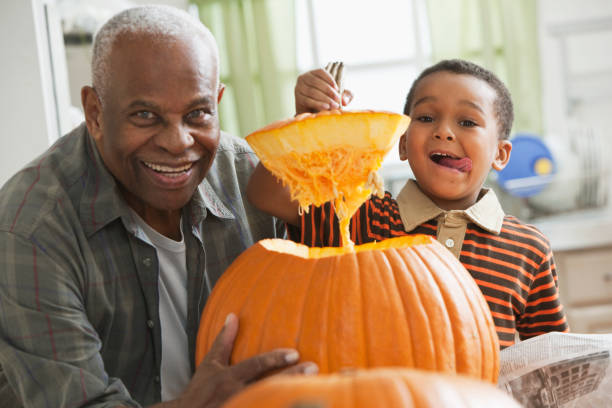
When there are suddenly creepy decorations and lots of knocks at the door from strangers, Halloween can be frightening for someone living with dementia.
Fortunately, it is possible to keep your loved one living with the disease calm and safe, while also including that family member in celebrating the holiday quietly, according to experts.
"Like with many other traditions, there are adaptations families can make to help their relatives living with dementia have a safe and enjoyable Halloween," says Jennifer Reeder, director of educational and social services for the Alzheimer's Foundation of America.
"We encourage caregivers to follow a few quick and easy steps to keep the 'Happy' in 'Happy Halloween' on Oct. 31," Reeder said in a foundation news release.
Here's what they suggest:
1. Help them reminisce
The foundation's experts suggest adapting the celebration by reminiscing about past Halloween costumes or activities while looking at old family pictures.
You can also watch a non-threatening program about Halloween together or one of their favorite Halloween movies. If your loved one typically operates the TV on their own, you can block certain channels that may be showing scary Halloween movies.
RELATED: Top Tips For Taking Care Of a Loved One With Alzheimer’s Disease
2. Get them some healthy snacks
If your loved one seems more agitated than usual, try limiting their candy intake.
Instead of giving them Halloween candy, give your loved one healthy snacks, such as fruit. Too much candy can increase agitation.
3. Make them a part of the fun
For some, it may be possible to have a loved one with dementia help hand out candy to trick-or-treaters. However, you should never leave your loved one alone. This could be frightening, confusing and a safety risk, the foundation suggests.
Another option for candy is to leave a bowl outside the door with a sign that says, "Please take one." This can prevent children from constantly ringing your doorbell and potentially scaring your loved one.
4. Try calming activities
Try playing calming music, engaging in a quiet activity such as reading a book together or providing soothing reassurance.
5. Avoid scary decorations
Minimize distress by avoiding potentially scary decorations, such as fake skeletons, cobwebs, witches and monsters.
You should also avoid nighttime use of flashlights, candles and light-up pumpkins. The eerie glow they cast can cause a person with dementia to have anxiety.
It's especially important to avoid exposure to interactive decorations that talk or scream when someone passes by or that have flashing or flickering lights. These can scare and cause someone with dementia to wander away, even from their own home.
Lastly, remember to stay safe with the lights on inside and outside the home, so burglars and vandals don't think the house is empty, the foundation suggests.
RELATED: Alzheimer’s & Dementia: Tips for Better Communication
Other activities to try with your loved one
You can get your loved one involved with the Halloween festivities without scaring them off by:
- Creating new memories by baking a pumpkin pie, decorating sugar cookies, painting, or carving a pumpkin with family and friends.
- Stenciling candy bags, filling candy bags, painting gourds and mini pumpkins, placing fall flowers in vases, painting paper placemats with Halloween-themed pictures.
- Putting the focus on fall, not Halloween. Replace ghosts and goblins with a cornucopia or basket of fall flowers and pinecones. Look ahead to Thanksgiving plans or discuss favorite fall memories, such as apple picking with the family.
The AFA Helpline at 866-232-8484 or via the website www.alzfdn.org offers an opportunity to speak with a licensed social worker seven days a week.









